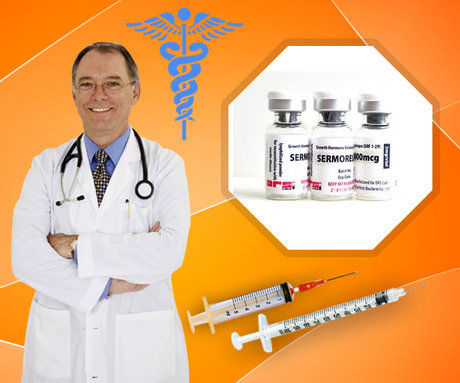Introduction
Traumatic brain injury (TBI) is a significant health concern affecting millions of Americans each year, with a notable impact on men due to their higher involvement in high-risk activities. Beyond the immediate neurological effects, TBI can lead to long-term endocrine disruptions, which are critical to recognize and manage effectively. This article delves into the endocrine sequelae of TBI in male patients, emphasizing long-term follow-up and management strategies.
Endocrine Disruptions Following TBI
TBI can disrupt the delicate balance of the endocrine system, leading to a variety of hormonal imbalances. In men, the most commonly affected hormones include growth hormone (GH), gonadotropins, and thyroid hormones. Hypopituitarism, characterized by deficient secretion of one or more pituitary hormones, is a frequent endocrine complication post-TBI. Studies indicate that up to 30% of TBI survivors may develop hypopituitarism, with symptoms manifesting months to years after the initial injury.
Growth Hormone Deficiency
Growth hormone deficiency (GHD) is a prevalent issue following TBI. Men with GHD may experience reduced muscle mass, increased fat mass, decreased bone density, and diminished quality of life. Long-term follow-up is essential, as symptoms may be subtle and easily overlooked. Regular screening for GHD, particularly in patients with severe TBI, is recommended to facilitate early diagnosis and treatment.
Gonadal Dysfunction
TBI can also impair the hypothalamic-pituitary-gonadal axis, leading to hypogonadism. Symptoms of hypogonadism in men include decreased libido, erectile dysfunction, infertility, and reduced muscle strength. Long-term management involves regular monitoring of testosterone levels and, when necessary, hormone replacement therapy to restore normal function and improve quality of life.
Thyroid Dysfunction
Thyroid hormone abnormalities, such as central hypothyroidism, can occur post-TBI. Symptoms may include fatigue, weight gain, and cold intolerance. Routine thyroid function tests are crucial for early detection and management. Treatment typically involves thyroid hormone replacement therapy, tailored to the individual's needs.
Long-Term Follow-Up and Management
Effective management of endocrine sequelae following TBI requires a multidisciplinary approach. Endocrinologists, neurologists, and rehabilitation specialists should collaborate to provide comprehensive care. Regular follow-up appointments are essential to monitor hormone levels and adjust treatments as needed. Patient education is also vital, empowering men to recognize symptoms and seek timely medical intervention.
Psychological and Social Considerations
The psychological impact of endocrine disruptions post-TBI cannot be overstated. Men may experience depression, anxiety, and decreased self-esteem, which can further complicate their recovery. Addressing these issues through counseling and support groups can enhance overall well-being and improve adherence to long-term management plans.
Emerging Research and Future Directions
Ongoing research continues to shed light on the complex interplay between TBI and endocrine function. Advances in imaging techniques and biomarker identification may soon enable earlier detection of endocrine abnormalities, allowing for more targeted interventions. Additionally, personalized medicine approaches hold promise for optimizing treatment outcomes in men with TBI-related endocrine issues.
Conclusion
The endocrine sequelae of traumatic brain injury in men represent a significant challenge that requires long-term follow-up and comprehensive management. By understanding the potential hormonal imbalances and implementing regular screening and treatment protocols, healthcare providers can improve the quality of life for male TBI survivors. As research progresses, the hope is to further refine our approach to managing these complex conditions, ensuring better outcomes for affected individuals.
Contact Us For A Fast And Professional Response

- Optimizing Testosterone Levels: Clomiphene Citrate's Role in Treating Secondary Hypogonadism in American Men [Last Updated On: February 22nd, 2025] [Originally Added On: February 22nd, 2025]
- Evaluating hCG Monotherapy and Exogenous Testosterone in Treating Hypogonadotropic Hypogonadism in Young American Men [Last Updated On: February 25th, 2025] [Originally Added On: February 25th, 2025]
- Multimodal Endocrine Evaluation Crucial for Diagnosing Fatigue in American Men [Last Updated On: February 26th, 2025] [Originally Added On: February 26th, 2025]
- The Impact of Insulin Resistance on Male Hormonal Health: A Comprehensive Overview [Last Updated On: March 7th, 2025] [Originally Added On: March 7th, 2025]
- Optimizing Hormone Therapy: Vitamin D's Role in Androgen Metabolism and HRT Protocols [Last Updated On: March 8th, 2025] [Originally Added On: March 8th, 2025]
- Optimizing Men's Health: Hormonal Balance and Personalized Hormone Replacement Therapy [Last Updated On: March 9th, 2025] [Originally Added On: March 9th, 2025]
- Unveiling the Potential of Neurosteroid Modulation in Treating Stress-Related Endocrine Dysfunction in American Men [Last Updated On: March 12th, 2025] [Originally Added On: March 12th, 2025]
- Harnessing the Power of SARMs: A New Frontier in Treating Male Endocrine Disorders [Last Updated On: March 13th, 2025] [Originally Added On: March 13th, 2025]
- Exploring the Impact of Oxytocin in Male Endocrinology: From Physiology to Therapy [Last Updated On: March 15th, 2025] [Originally Added On: March 15th, 2025]
- Chronobiology's Impact on Male Hormone Rhythms and Clinical Management [Last Updated On: March 18th, 2025] [Originally Added On: March 18th, 2025]
- Essential Trace Elements' Impact on Male Hormone Health: Zinc, Selenium, Magnesium [Last Updated On: March 19th, 2025] [Originally Added On: March 19th, 2025]
- Mitochondrial Function and Male Hormone Production: Therapeutic Targets for Age-Related Decline [Last Updated On: March 19th, 2025] [Originally Added On: March 19th, 2025]
- Precision Medicine in Endocrinology: Tailoring HRT for American Males Using Genomic and Metabolomic Data [Last Updated On: March 19th, 2025] [Originally Added On: March 19th, 2025]
- Gut Microbiome's Impact on Steroid Hormone Metabolism in Men: An Endocrinological Perspective [Last Updated On: March 19th, 2025] [Originally Added On: March 19th, 2025]
- Metabolomics: Revolutionizing Male Endocrine Health Diagnosis and Personalized Care [Last Updated On: March 20th, 2025] [Originally Added On: March 20th, 2025]
- Pharmacogenomics Revolutionizes Hormone Therapy for Men: Personalized Treatment Insights [Last Updated On: March 20th, 2025] [Originally Added On: March 20th, 2025]
- Ghrelin Modulation Enhances Testosterone Therapy for Weight Management in Hypogonadal Men [Last Updated On: March 21st, 2025] [Originally Added On: March 21st, 2025]
- Inflammaging and Endocrine Senescence: Impact on Male Hormonal Health and Optimization Strategies [Last Updated On: March 21st, 2025] [Originally Added On: March 21st, 2025]
- Adipokines in Male Endocrinology: Testosterone, Insulin Sensitivity, and Therapeutic Insights for American Men [Last Updated On: March 21st, 2025] [Originally Added On: March 21st, 2025]
- Pituitary Incidentalomas in Men: Endocrine Evaluation and Management Guidelines [Last Updated On: March 21st, 2025] [Originally Added On: March 21st, 2025]
- Endocrine Disrupting Chemicals: Impact on Male Health and Mitigation Strategies [Last Updated On: March 22nd, 2025] [Originally Added On: March 22nd, 2025]
- Thyroid-Testicular Axis: Impact on Male Reproductive Health and Management Strategies [Last Updated On: March 22nd, 2025] [Originally Added On: March 22nd, 2025]
- Understanding Male Climacteric Syndrome: Diagnosis, HRT, and Endocrinology's Role [Last Updated On: March 22nd, 2025] [Originally Added On: March 22nd, 2025]
- Optimizing Bone Health in Men on HRT: Importance and Protocols for BMD Monitoring [Last Updated On: March 22nd, 2025] [Originally Added On: March 22nd, 2025]
- Longitudinal Epigenetic Changes from Hormone Replacement Therapy in American Men [Last Updated On: March 22nd, 2025] [Originally Added On: March 22nd, 2025]
- Managing Prostate Health During TRT: Risk Stratification and Monitoring Protocols [Last Updated On: March 23rd, 2025] [Originally Added On: March 23rd, 2025]
- Somatostatin Analogues: Versatile Applications in Male Endocrinology and Beyond [Last Updated On: March 23rd, 2025] [Originally Added On: March 23rd, 2025]
- Multimarker Cardiometabolic Risk Assessment for American Males on HRT [Last Updated On: March 23rd, 2025] [Originally Added On: March 23rd, 2025]
- Managing Polycythemia in Men on Testosterone Replacement Therapy: Monitoring and Strategies [Last Updated On: March 23rd, 2025] [Originally Added On: March 23rd, 2025]
- Endocrine Reserve Testing in Men: Applications, Limitations, and Clinical Best Practices [Last Updated On: March 24th, 2025] [Originally Added On: March 24th, 2025]
- Vasopressin's Role in Male Endocrinology: Therapeutic Applications and Future Research [Last Updated On: March 24th, 2025] [Originally Added On: March 24th, 2025]
- Biomarkers in Male Endocrinology: Growth Factors, Cytokines, and Clinical Applications [Last Updated On: March 24th, 2025] [Originally Added On: March 24th, 2025]
- Strategic Hormone Optimization to Combat Sarcopenia in Aging American Males [Last Updated On: March 24th, 2025] [Originally Added On: March 24th, 2025]
- OSA in American Men: Beyond Testosterone, Impacting Multiple Endocrine Systems [Last Updated On: March 24th, 2025] [Originally Added On: March 24th, 2025]
- Androgen Receptor Sensitivity: Personalizing Hormone Therapy for American Men's Health [Last Updated On: March 24th, 2025] [Originally Added On: March 24th, 2025]
- Male Biological Clock: Endocrine Impacts on Fertility and Offspring Health [Last Updated On: March 24th, 2025] [Originally Added On: March 24th, 2025]
- Energy Balance and Reproductive Health: Neuroendocrine Integration in American Men [Last Updated On: March 24th, 2025] [Originally Added On: March 24th, 2025]
- Post-Traumatic Hypopituitarism in American Men: Diagnosis, Treatment, and Lifestyle Management [Last Updated On: March 24th, 2025] [Originally Added On: March 24th, 2025]
- Exercise and Endocrinology: Optimizing Hormonal Health in American Men [Last Updated On: March 25th, 2025] [Originally Added On: March 25th, 2025]
- Managing HPT Axis Recovery in American Men Post-Testosterone Therapy: Clinical Strategies [Last Updated On: March 25th, 2025] [Originally Added On: March 25th, 2025]
- Leptin Resistance in Men: Endocrine Effects and Targeted Management Strategies [Last Updated On: March 25th, 2025] [Originally Added On: March 25th, 2025]
- NAFLD and Male Endocrine Health: Bidirectional Impacts and Management Strategies [Last Updated On: March 26th, 2025] [Originally Added On: March 26th, 2025]
- HRT and Telomere Length: Implications for Aging in American Men [Last Updated On: March 26th, 2025] [Originally Added On: March 26th, 2025]
- Male Hormonal Health and Cognitive Function: The Role of Hormone Replacement Therapy [Last Updated On: March 26th, 2025] [Originally Added On: March 26th, 2025]
- Diurnal Testosterone Fluctuations: Implications for Diagnosis and Hormone Therapy in Men [Last Updated On: March 26th, 2025] [Originally Added On: March 26th, 2025]
- Endocrine Frailty in Aging Men: Multimodal Interventions and Preventive Care Strategies [Last Updated On: March 26th, 2025] [Originally Added On: March 26th, 2025]
- Androgen Therapy's Role in Managing Autoimmune Diseases in Men: A Clinical Perspective [Last Updated On: March 26th, 2025] [Originally Added On: March 26th, 2025]
- Neuropeptide Y: Key Regulator of Male Endocrine and Metabolic Health [Last Updated On: March 26th, 2025] [Originally Added On: March 26th, 2025]
- Free vs. Total Hormones: Key to Accurate Male Endocrinology Diagnosis and Treatment [Last Updated On: March 27th, 2025] [Originally Added On: March 27th, 2025]
- Endocannabinoid System's Role in Male Reproductive Endocrinology: Insights and Therapeutic Potential [Last Updated On: March 27th, 2025] [Originally Added On: March 27th, 2025]
- Luteinizing Hormone: Key to Male Endocrinology and Fertility Management [Last Updated On: March 27th, 2025] [Originally Added On: March 27th, 2025]
- Genetic Insights and Personalized Treatments for Male Hypogonadism [Last Updated On: March 27th, 2025] [Originally Added On: March 27th, 2025]
- Subclinical Endocrinopathies in American Men: Diagnosis, Treatment, and Impact [Last Updated On: March 27th, 2025] [Originally Added On: March 27th, 2025]
- INSL3: A Stable Biomarker for Leydig Cell Function and Male Health [Last Updated On: March 27th, 2025] [Originally Added On: March 27th, 2025]
- SHBG's Impact on Male Health: Hormonal Balance, Diagnosis, and Aging [Last Updated On: March 27th, 2025] [Originally Added On: March 27th, 2025]
- Opioid-Induced Endocrinopathy in Men: Mechanisms, Diagnosis, and Management Strategies [Last Updated On: March 29th, 2025] [Originally Added On: March 29th, 2025]
- AMH's Role in Male Endocrinology: From Infertility to Cancer Diagnostics [Last Updated On: March 29th, 2025] [Originally Added On: March 29th, 2025]
- Chemotherapy's Impact on Male Endocrine Function: Monitoring and Intervention Strategies [Last Updated On: March 30th, 2025] [Originally Added On: March 30th, 2025]
- Inhibin B: Key Biomarker for Assessing Male Fertility and Endocrine Health in America [Last Updated On: March 30th, 2025] [Originally Added On: March 30th, 2025]
- Radiation-Induced Hypopituitarism in Men: Patterns, Diagnosis, and Hormone Therapy [Last Updated On: March 30th, 2025] [Originally Added On: March 30th, 2025]
- Hemochromatosis in American Men: Endocrine Effects, Screening, and Management Strategies [Last Updated On: April 1st, 2025] [Originally Added On: April 1st, 2025]
- Osteoporosis in Men: Primary, Secondary Types, Endocrine Evaluations, and Treatment Options [Last Updated On: April 5th, 2025] [Originally Added On: April 5th, 2025]
- Chronic Kidney Disease: Impacts and Management of Male Endocrine Function [Last Updated On: April 5th, 2025] [Originally Added On: April 5th, 2025]
- Hyperparathyroidism's Impact on Male Reproductive Health: Diagnosis and Management Strategies [Last Updated On: April 5th, 2025] [Originally Added On: April 5th, 2025]
- Hormonal Dynamics in Male Stress Urinary Incontinence: Insights and Therapeutic Approaches [Last Updated On: April 7th, 2025] [Originally Added On: April 7th, 2025]
- Managing Male Sexual Desire Disorders: Hormonal, Psychological, and Therapeutic Approaches [Last Updated On: April 8th, 2025] [Originally Added On: April 8th, 2025]
- Optimizing GH and IGF-1 in Male Athletes: Performance, Health, and Ethics [Last Updated On: April 8th, 2025] [Originally Added On: April 8th, 2025]
- Adrenal Incidentalomas in American Men: Evaluation, Management, and Long-term Monitoring [Last Updated On: April 10th, 2025] [Originally Added On: April 10th, 2025]
- Cushing's Syndrome in Men: Clinical Features, Diagnosis, and Management Strategies [Last Updated On: April 10th, 2025] [Originally Added On: April 10th, 2025]
- HRT and Male Fertility: Current Practices and Future Innovations for American Men [Last Updated On: April 10th, 2025] [Originally Added On: April 10th, 2025]
- Androgen Action: Molecular Insights and Endocrine Therapy Advances for American Men [Last Updated On: April 11th, 2025] [Originally Added On: April 11th, 2025]
- Enhancing Endocrine Resilience in Men: Hormones, Lifestyle, and Health Strategies [Last Updated On: April 11th, 2025] [Originally Added On: April 11th, 2025]
- Hormone Therapy Protocols for Transgender Men: Endocrinology for American Males [Last Updated On: April 12th, 2025] [Originally Added On: April 12th, 2025]
- Male Hormonal Contraception: Endocrine Mechanisms and Clinical Progress in American Males [Last Updated On: April 13th, 2025] [Originally Added On: April 13th, 2025]
- Digital Biomarkers Revolutionizing Hormone Therapy in American Men's Endocrinology [Last Updated On: April 14th, 2025] [Originally Added On: April 14th, 2025]
- AI-Driven Precision Endocrinology: Personalized Hormone Therapy for Men's Health [Last Updated On: April 14th, 2025] [Originally Added On: April 14th, 2025]
- Validating and Implementing PROMs in Male Endocrinology for American Men's Health [Last Updated On: April 15th, 2025] [Originally Added On: April 15th, 2025]
- Integrative Endocrinology: Enhancing Men's Hormonal Health with Holistic and Conventional Therapies [Last Updated On: April 15th, 2025] [Originally Added On: April 15th, 2025]
- Telehealth Revolutionizes Hormone Replacement Therapy Management for American Men [Last Updated On: April 16th, 2025] [Originally Added On: April 16th, 2025]
- Quality Indicators in Male Endocrinology: Development, Implementation, and Impact on Men's Health [Last Updated On: April 17th, 2025] [Originally Added On: April 17th, 2025]

















